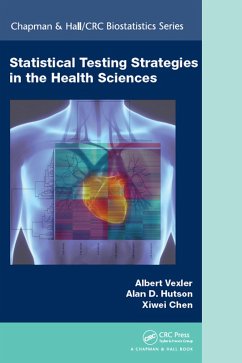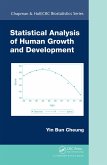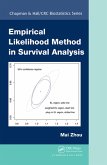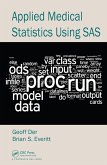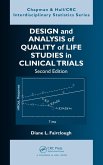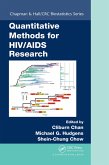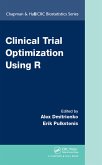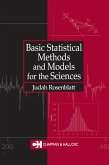Statistical Testing Strategies in the Health Sciences provides a compendium of statistical approaches for decision making, ranging from graphical methods and classical procedures through computationally intensive bootstrap strategies to advanced empirical likelihood techniques. It bridges the gap between theoretical statistical methods and practical procedures applied to the planning and analysis of health-related experiments.
The book is organized primarily based on the type of questions to be answered by inference procedures or according to the general type of mathematical derivation. It establishes the theoretical framework for each method, with a substantial amount of chapter notes included for additional reference. It then focuses on the practical application for each concept, providing real-world examples that can be easily implemented using corresponding statistical software code in R and SAS. The book also explains the basic elements and methods for constructing correct and powerful statistical decision-making processes to be adapted for complex statistical applications.
With techniques spanning robust statistical methods to more computationally intensive approaches, this book shows how to apply correct and efficient testing mechanisms to various problems encountered in medical and epidemiological studies, including clinical trials. Theoretical statisticians, medical researchers, and other practitioners in epidemiology and clinical research will appreciate the book's novel theoretical and applied results. The book is also suitable for graduate students in biostatistics, epidemiology, health-related sciences, and areas pertaining to formal decision-making mechanisms.
The book is organized primarily based on the type of questions to be answered by inference procedures or according to the general type of mathematical derivation. It establishes the theoretical framework for each method, with a substantial amount of chapter notes included for additional reference. It then focuses on the practical application for each concept, providing real-world examples that can be easily implemented using corresponding statistical software code in R and SAS. The book also explains the basic elements and methods for constructing correct and powerful statistical decision-making processes to be adapted for complex statistical applications.
With techniques spanning robust statistical methods to more computationally intensive approaches, this book shows how to apply correct and efficient testing mechanisms to various problems encountered in medical and epidemiological studies, including clinical trials. Theoretical statisticians, medical researchers, and other practitioners in epidemiology and clinical research will appreciate the book's novel theoretical and applied results. The book is also suitable for graduate students in biostatistics, epidemiology, health-related sciences, and areas pertaining to formal decision-making mechanisms.
Dieser Download kann aus rechtlichen Gründen nur mit Rechnungsadresse in A, B, BG, CY, CZ, D, DK, EW, E, FIN, F, GR, HR, H, IRL, I, LT, L, LR, M, NL, PL, P, R, S, SLO, SK ausgeliefert werden.

